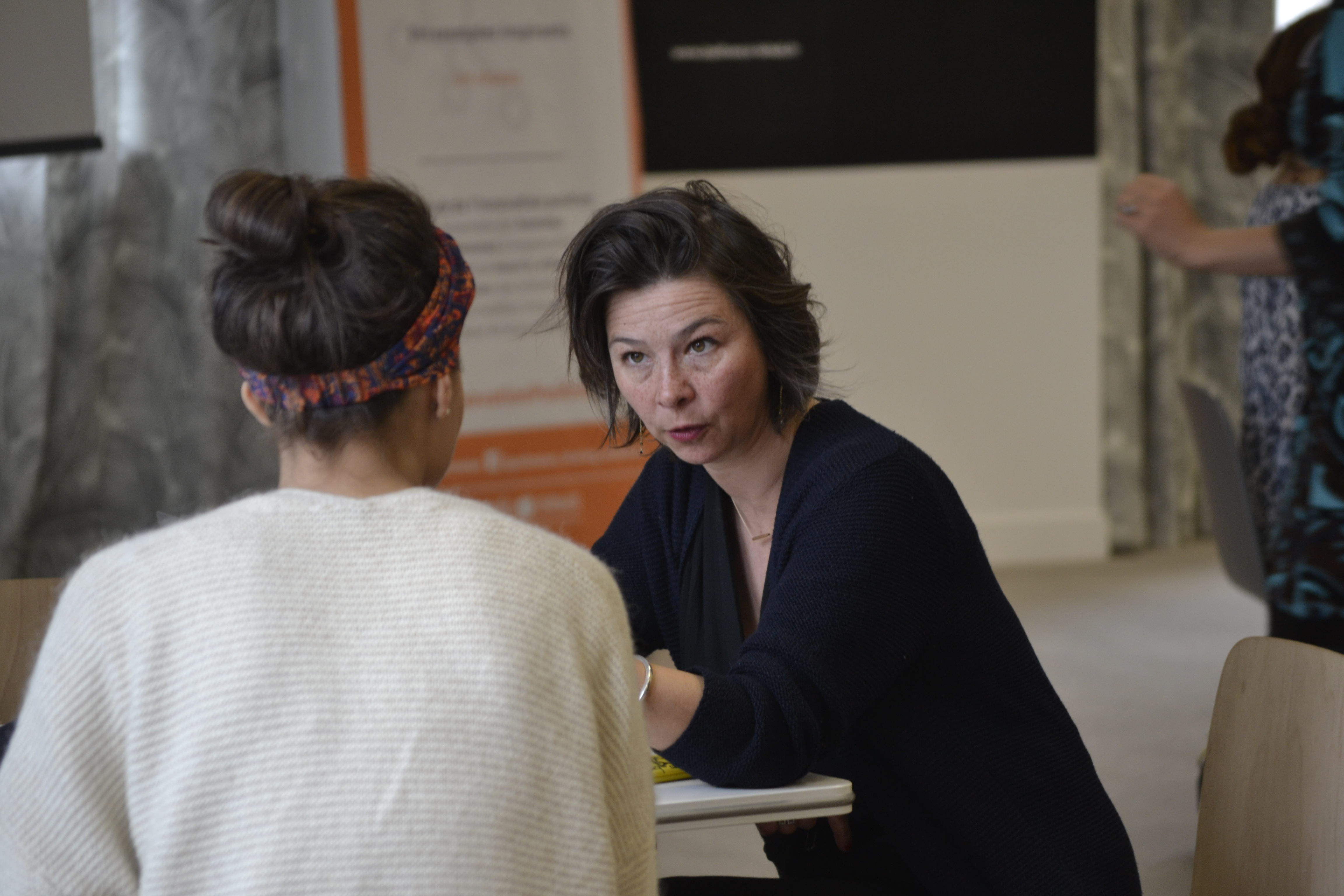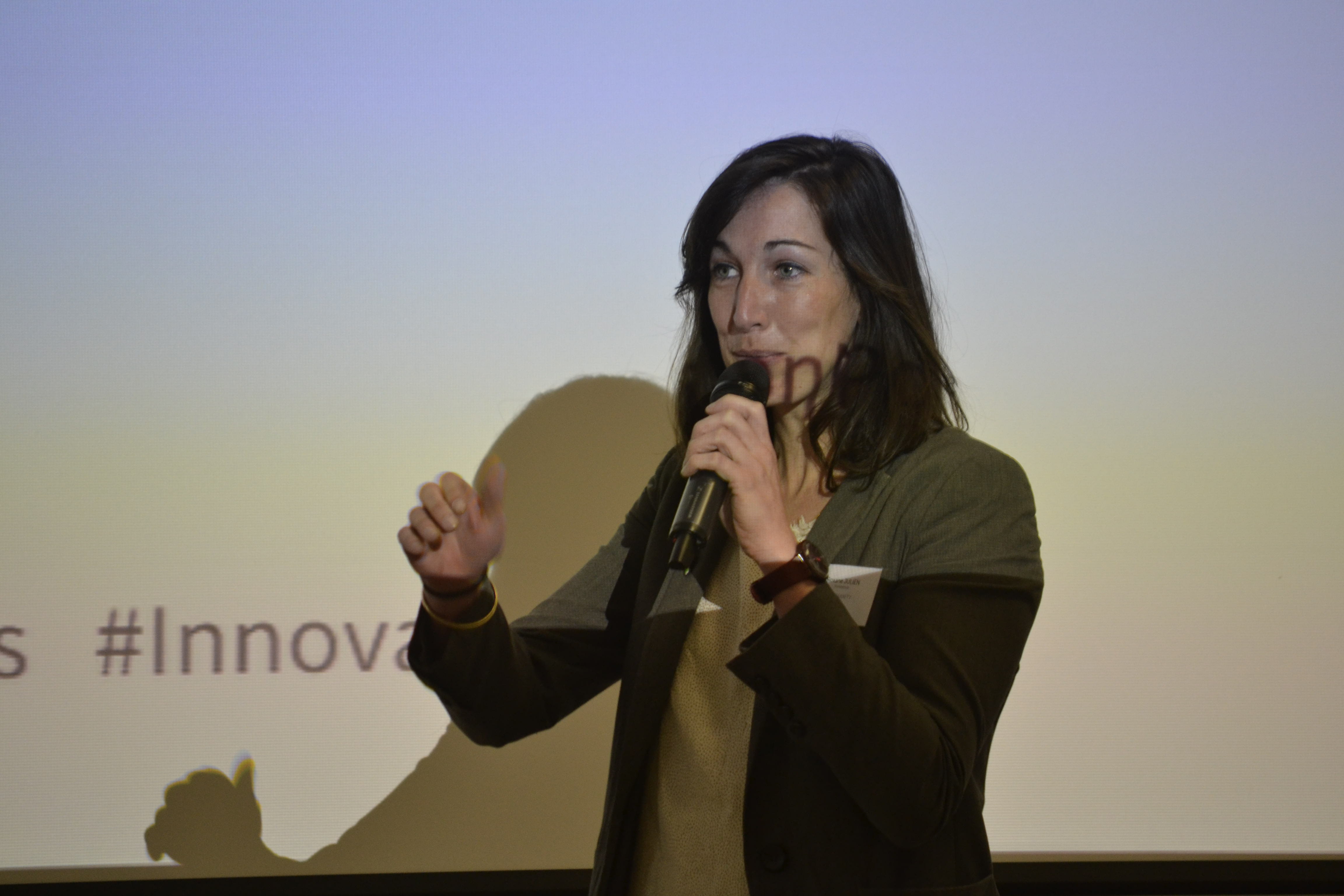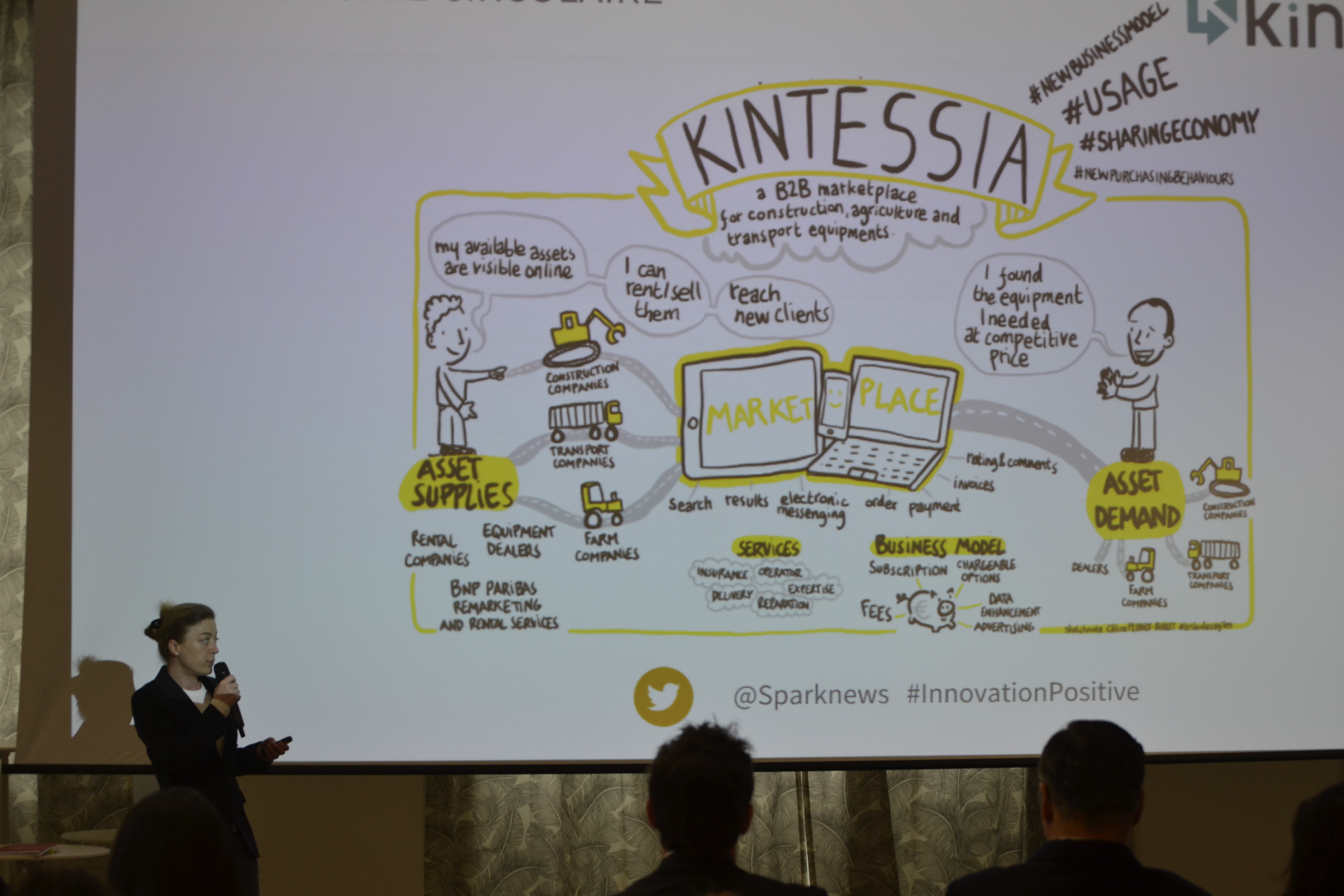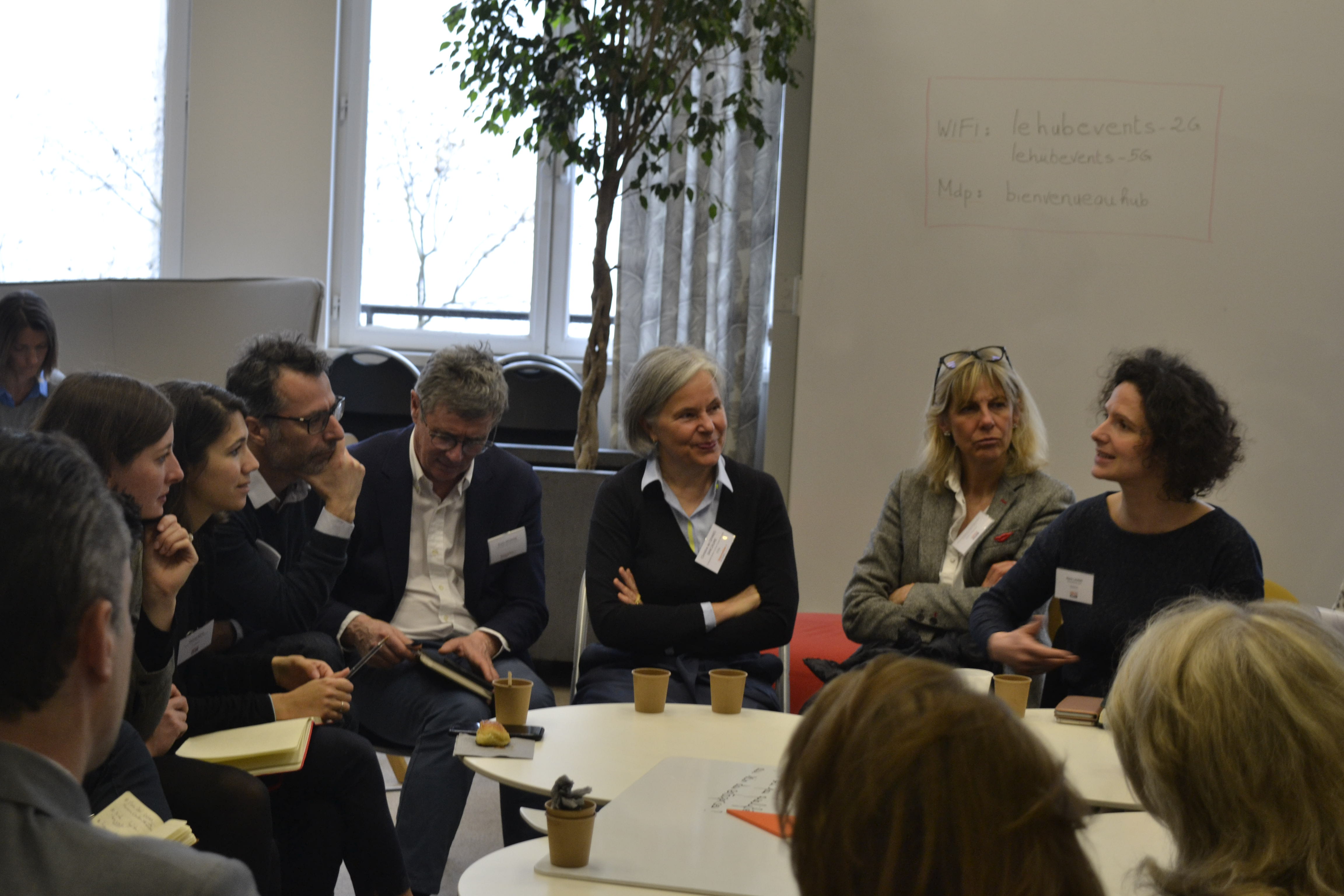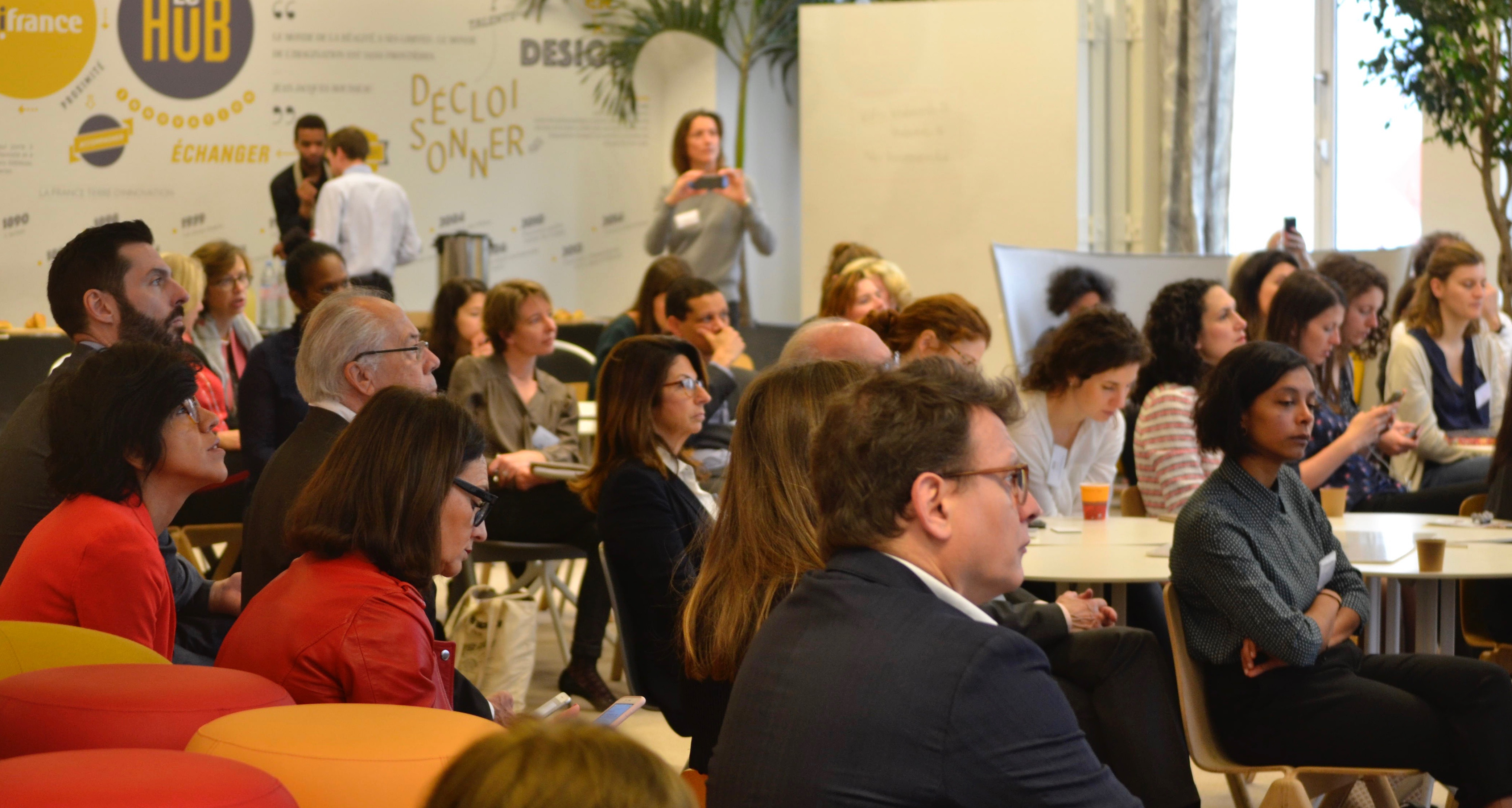
Array of Mission Businesses Led by Women at the Positive Innovation Club
On April 9, 2018, the members of the Positive Innovation Club met with an all-female line-up of social entrepreneurs. This Club brings together committed business executives (L’Oréal, Suez, AXA, LVMH, Orange, Sanofi, Total, ADEME, Lagardère, etc.) and inspiring project leaders. For once, the projects presented were only led by business women. Here is a small anthology of “mission” companies that they founded, managed and presented: from human resources to recycling or consulting.
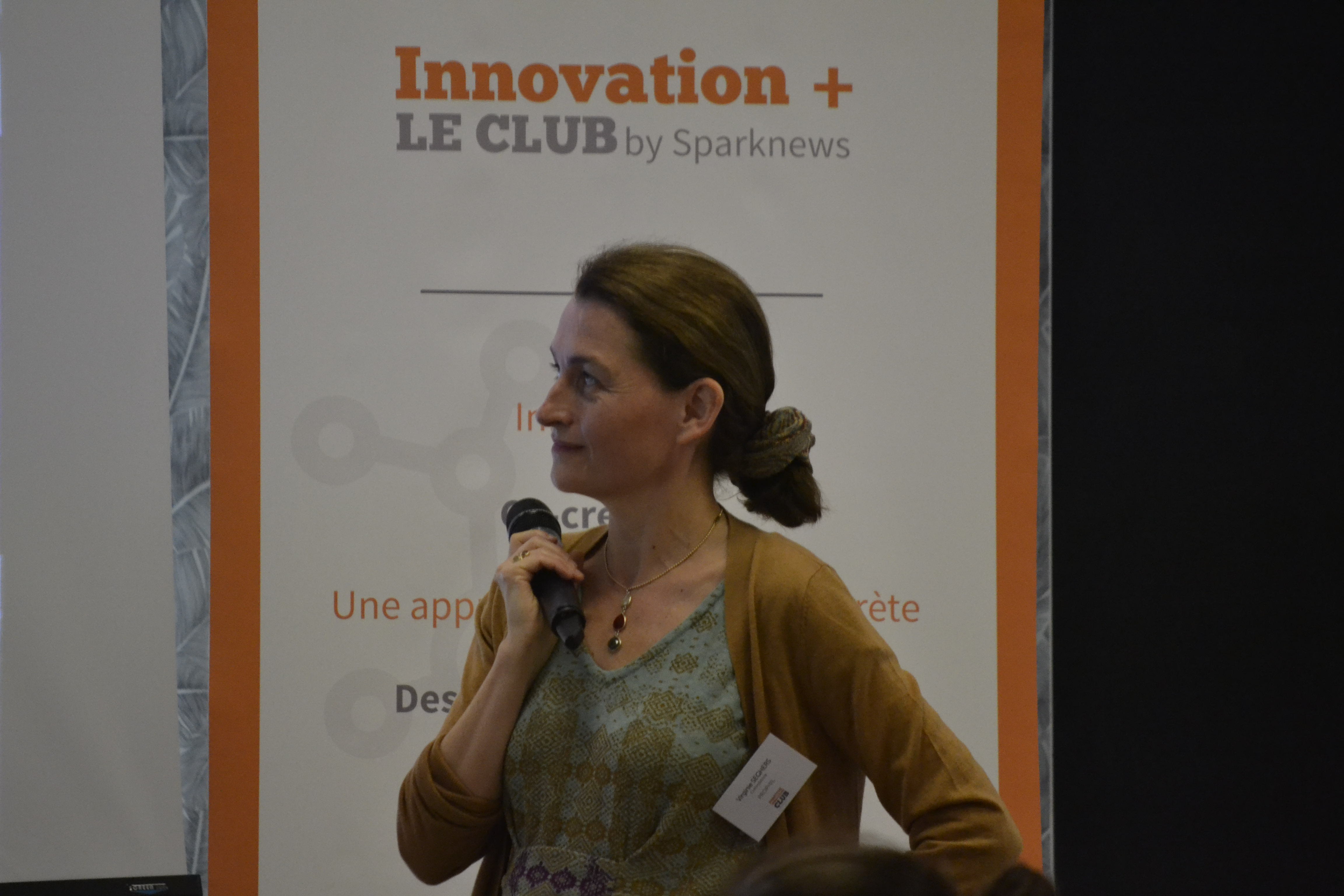
Geneviève Creuzet -Ferone and Virginie Seghers of Prophil: helping companies to go beyond CSR towards “mission” companies
The two founders of Prophil, Geneviève Ferone Creuzet and Virginie Seghers, campaign to go beyond the classic model of CSR towards the “mission company”, meaning, “a company that defines in its statutes an object extended to societal issues and enforceable according to internally defined rules “. This is part of a national movement: on April 18, J.D. Senard, president of the Michelin group, and N. Notat, former secretary general of the CFDT and president of Vigeo-Eiris, presented in the council of ministers their report “Company and general interest “. The consulting firm Prophil was auditioned by J.D. Senard and N. Notat before submitting this report.
Clémence Coghlan de Chance: the commitment of employees in companies
Clémence Coghlan founded Chance, a platform that relies on robotization and artificial intelligence to democratize coaching and thus enable job seekers to find the professional opportunity that motivates them. For the low-skilled, the job search phase is usually guided by the financial need rather than the actual desire or dream of the job, which quickly causes a lack of commitment, resulting in tiredness, loss of energy, or even resignation. Chance is a social start-up that connects recruiters and candidates beyond the resume, with a more personal approach linking technology and social. It invites candidates to question themselves in order to identify what gives them energy at work and supports them in their professional endeavors.
Hélène de La Moureyre de Bilum: from business waste to resources
A French creation company founded in 2005, Bilum gives a second life to materials doomed to elimination. In the Choisy-le-Roi factory, seven kilometers from Paris, the Bilum team makes bags, accessories and a few pieces of furniture. It is a manual, artisanal and local activity, with a focus on social inclusion: the workshops with which Bilum collaborates are mainly ESATs (Establishment and service of help through work, welcoming people with disabilities) and EA (Establishment and Help Desk and Adapted Enterprise). The accessories are sold to the public at large via the website but also by companies such as Air France selling toilet kits made from airplane seat covers. This system allows customers to make profits on their waste, which can then be reinvested in companies. Another example is the old sheets of Guerlain spas that are transformed into cleansing gloves.
Roxane Julien from Newmanity: making big data greener and more ethical
Newmanity is an application that allows you to manage mails and chats in the same interface while tackling two challenges of the web: digital pollution and data protection. Newmanity has developed a carbon neutral data center: it is powered by green energies and consumes less than a conventional data center as less data is stored. Indeed, user data is stored only twice (against eight times for Google), for ethical reasons. The developed application is close to Slack / Whatsapp / Teams. This project is part of a movement supported by the latest French law on General Regulation on Data Protection that wants to recreate a European ecosystem around data protection
Nicole Jacquin Mourain d’Anggel’Dom: Comfortably aging at home
Only 8 to 10% of the elderly are really dependent. Many others could remain autonomous and wish to live in their homes as long as possible, as long as they are supported and secured. Knowing that there are not enough doctors and nurses in town, we must find alternatives. Designed by doctors specialized in gerontology, the solution proposed by Anggel’dom is based on the coordination of a combination of human resources (network of doctors, care-providers) and technology (platform available 7 days a week and 24 hours a day for facilitate communication and coordination between the patient, the medical profession, the pharmacy, the family …).
Marie Dahl from Kintessia: a market place to share equipment between professionals
Kintessia is a marketplace for the rental or sale of unused equipment for farming, transport or public works. These assets that would be underutilized in companies are rented out, thus making them profitable. Kintessia, an intrapreneurial project of BNP Paribas, is a trusted third party that ensures the security of transactions, insurance and the quality of the community. Used equipment currently offered for hire include tractors, refrigerated semi-trailers or skips. CuntWars , aka Chick Wars! Card games and auto chess clones are all the fucking rage these days. It’s really going a long way to prove that kids these days are losing their attention spans. I’d admit to being a cranky old man, but I’m barely middle-aged, for fucks sakes. Plus, I’m basically a porn god, so you can’t fault me for being behind the times. I just don’t get why everything needs to be simplified to all hell in order to be marketable. Regardless, that’s the direction that gaming has taken. Strategy games became multiple online battle arenas and those further became auto chess games
Liza Garay de Vaubergnier of AXA Women’s market: a new approach to women’s insurance
Numerous studies have shown that in the world, women are the ones in charge of safety and home insurance issues but also have a growing need for insurance for their own entrepreneurial activities. To get closer to them in order to better understand their needs, listen to their ideas and thus adapt their offer, AXA has developed the Women’s Market.
A few words on the Club of Positive Innovation
Every two months, 100+ business leaders come together to take a dose of optimism and inspiration, discover initiatives and share feedback to become actors of change. The format of a Club event is relatively constant: a keynote speaker, a session of pitching social entrepreneurs and amazing intrapreneurs, a workshop of ideation and finally a cocktail to continue the discussions. The topics discussed vary from circular economy, zero waste, blue economy, new organizational models, and tech for good. The pitch sessions are moments of inspiration but also the opportunity for entrepreneurs and intrapreneurs to submit their problems to executives invested in various companies.


